Recently Released.
Newly Released in the last 30 days


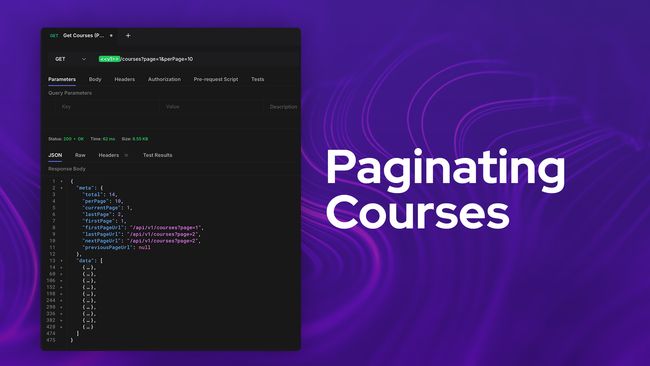
Paginating our Course List
In this lesson, we'll transform our courses list endpoint into a pagination endpoint. We'll check and validate our query string for a page and per page parameter that we'll then use to fetch pages of our courses.


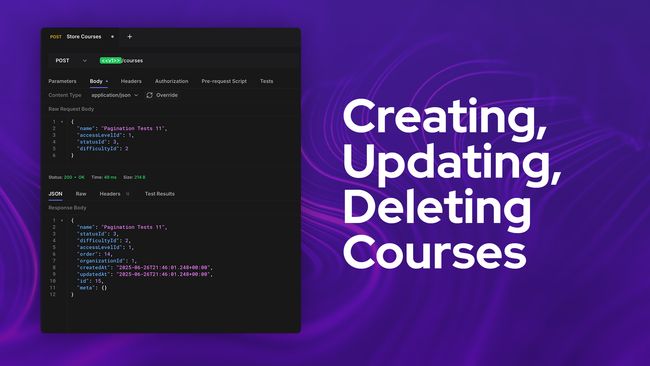
Creating, Updating, and Deleting Courses
In this lesson, we'll add endpoints to allow creating, updating, and deleting courses from our API. We'll then use this to stub a number of test courses to give us wiggle room to play with our pagination.


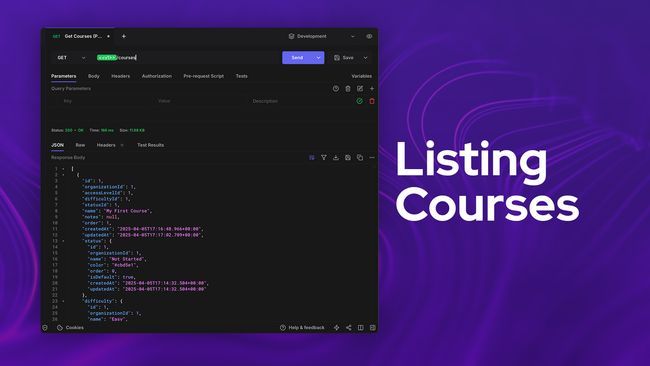
Listing Courses
Our goal in this step is to add an endpoint that lists our courses. We'll then build upon this endpoint further with the ultimate goal of getting a list of paginated courses.


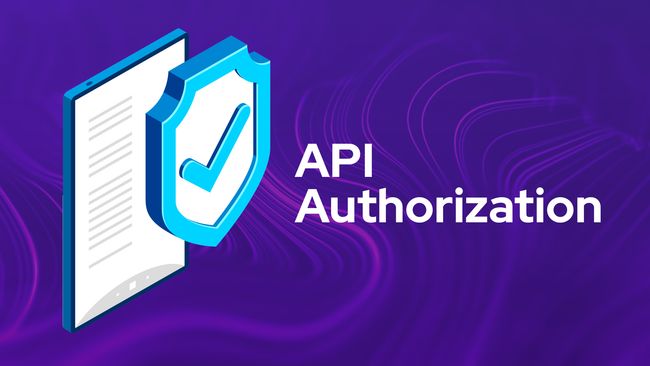
API Authorization Checks
In this lesson, we'll implement our API Authorization checks across all the API controller methods we've implemented thus far. We'll then create a specific access token for each operation (read, create, update, and delete) to ensure everything is working.



Status API CRUD
In this lesson, we'll duplicate everything we did one more time for our organization's statuses.



Access Level API CRUD
In this lesson, we'll walk through adding API endpoints for the full CRUD (create, read, update, and delete) flow for our organization's access levels.


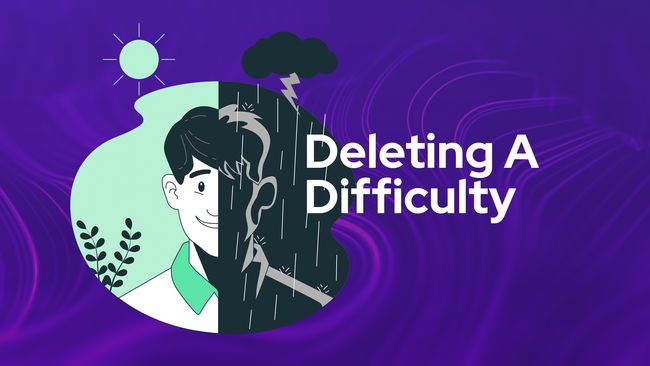
Deleting A Difficulty
The last CRUD method we need to add is the ability to delete our a difficulty by adding a DELETE API route, we'll take care of that in this lesson.


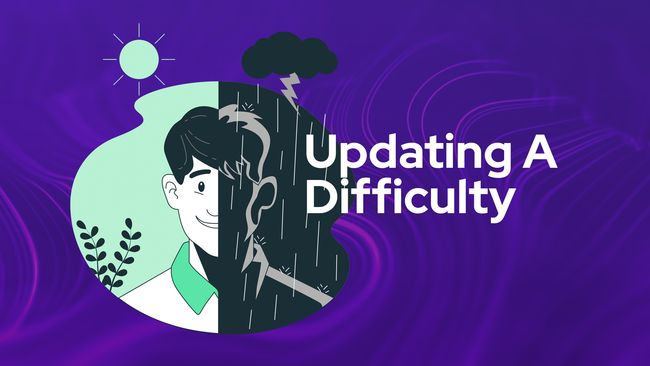
Updating A Difficulty
In this lesson, we'll add a PUT API route to handle updating our difficulties! This route will also accept in a specific difficulty id via route parameter to specify which difficulty should be updated.


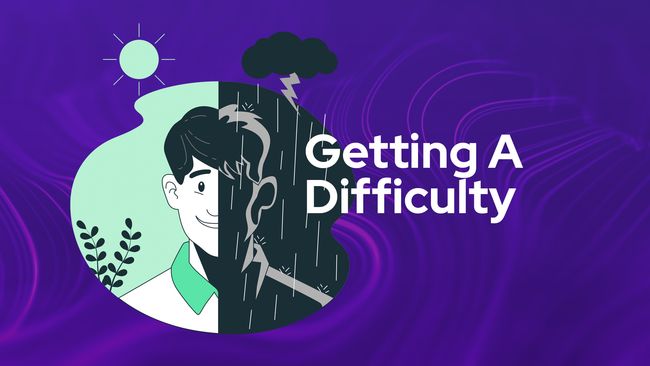
Getting A Specific Difficulty
In this lesson, we'll add a GET API route enabling us to get the details of a specific difficulty by providing the difficulties id via route parameter.


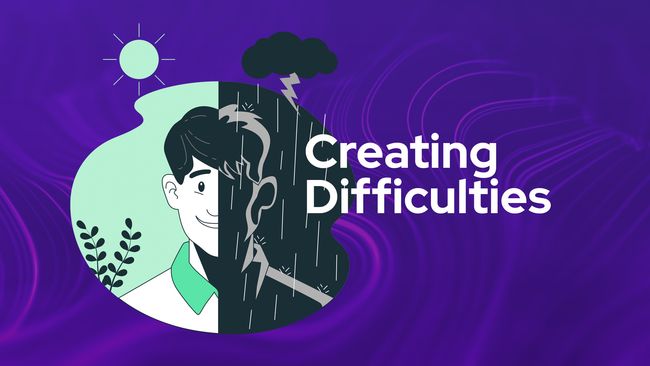
Creating Organization Difficulties
Next, we'll add a POST route and handler so that we can create difficulties from our API


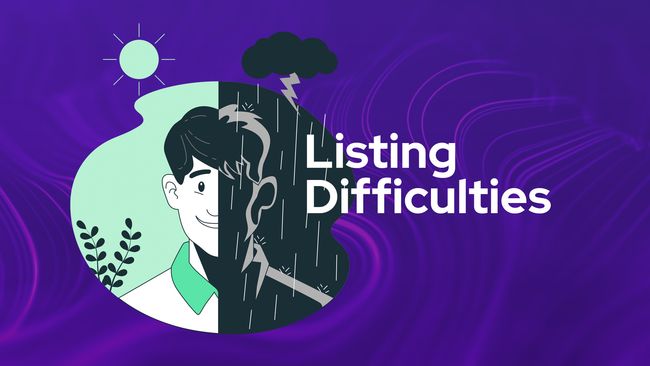
Listing Organization Difficulties
In this lesson, we'll begin work on our first CRUD-based API resource by adding the ability to query a list of all our organization's difficulties.
Lessons.



Paginating our Course List
In this lesson, we'll transform our courses list endpoint into a pagination endpoint. We'll check and validate our query string for a page and per page parameter that we'll then use to fetch pages of our courses.



Creating, Updating, and Deleting Courses
In this lesson, we'll add endpoints to allow creating, updating, and deleting courses from our API. We'll then use this to stub a number of test courses to give us wiggle room to play with our pagination.



Listing Courses
Our goal in this step is to add an endpoint that lists our courses. We'll then build upon this endpoint further with the ultimate goal of getting a list of paginated courses.



Access Level API CRUD
In this lesson, we'll walk through adding API endpoints for the full CRUD (create, read, update, and delete) flow for our organization's access levels.



Deleting/Revoking Access Tokens
In this lesson, we'll add the ability for our users to revoke an access token by deleting it out of our database.

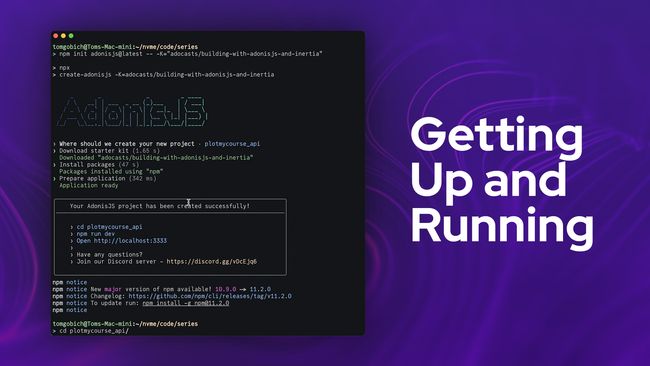
Getting the Web Project Up & Running
We'll get our web project cloned down. Then, we'll get it configured by first creating our database and running our migrations and seeder. Lastly, we'll get a test SMTP email inbox set up through MailTrap.

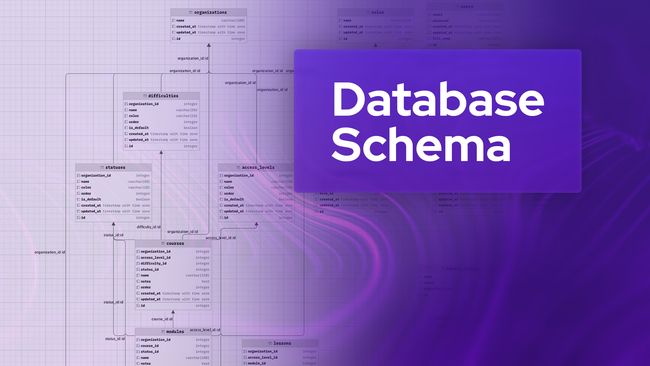
Overview of our Database Schema
In this lesson, we'll take a high level look at our database's schema so that we have an understanding at the entities and models at play and how they relate to one another within our application.


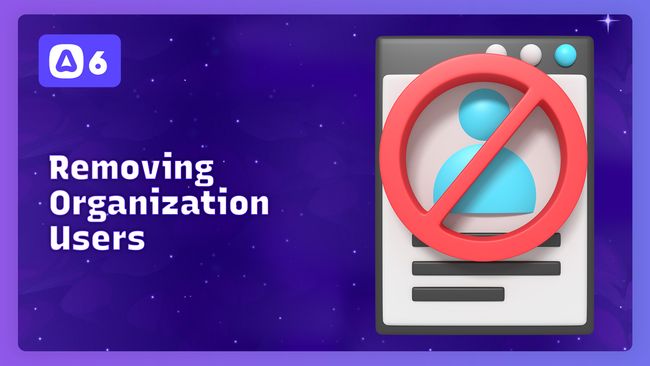
Removing an Organization User
In this lesson, we'll add the ability to remove users, including ourselves, from an organization. We'll also discuss a few key elements needed to handle this gracefully.


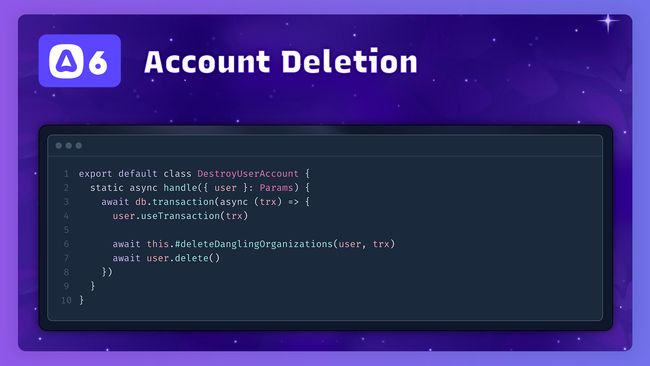
Account Deletion & Cleaning Dangling Organizations
In this lesson, we'll add the ability for our user's to delete their accounts. During account deletion, we'll also delete any organization's this user is the only member of, keeping them from dangling inside our database without users.



Allowing Users to Safely Update Their Account Email
In this lesson, we'll add the ability for our users to safely update their account email address. We'll require them to confirm their password, then make the update in our database and log it to the user's email histories.

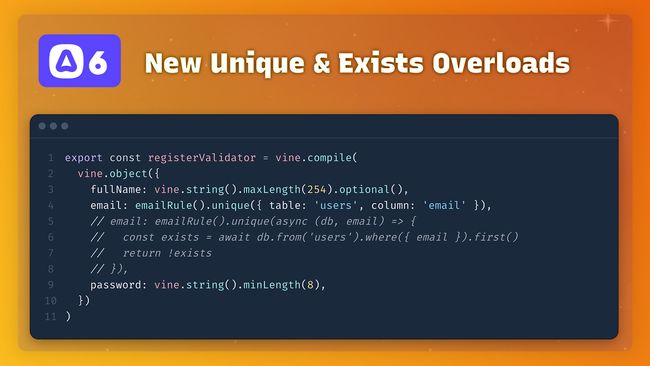
New Unique & Exist Validation Overloads in AdonisJS 6
In this lesson, we'll cover the new overload option recently added to Lucid's VineJS unique and exists rules allowing for a simplified usage for common use-cases.


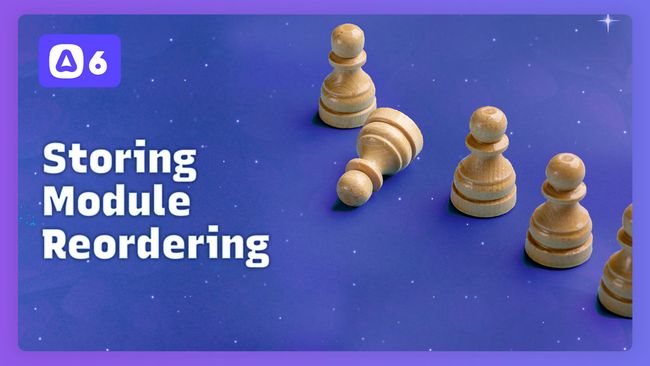
Storing Module Order Changes from Vue Draggable
In this lesson, we'll persist sort order changes to the database when dragging and dropping a course's modules using Vue Draggable


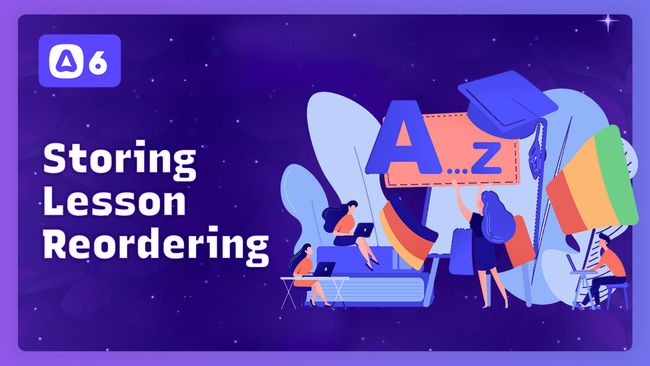
Storing Lesson Order Changes & Handling Cross-Module Drag & Drops
In this lesson, save the changes made to lessons inside a course when a user uses drag-and-drop to move a lesson. Users can change the lesson order inside a single module or move a lesson into a new module, so we'll need to handle both use cases.


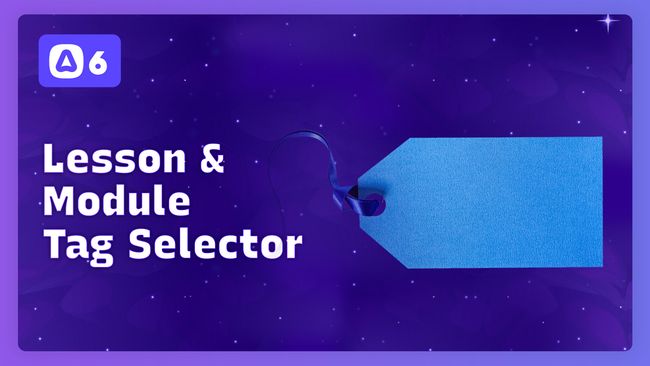
Patching Tag Changes for our Modules & Lessons
In this lesson, we’ll incorporate our Tag Selector component into our modules and lessons to facilitate easy visibility and updates of their statuses and access levels.


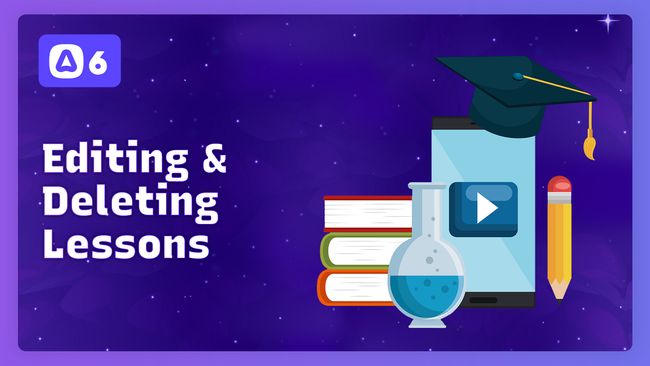
Editing & Deleting Course Lessons
In this lesson, we'll add the ability to edit and delete lessons from a course's module. When editing, we'll also decrement the order field for all lessons within the module after the lesson being deleted.


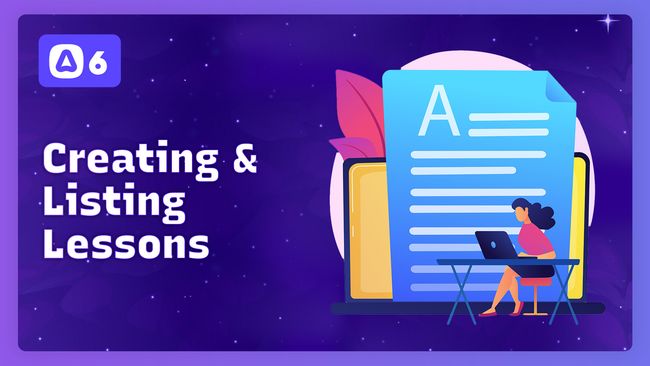
Creating & Listing Sortable Course Lessons
In this lesson, we'll add the ability to create new lessons within a course's module. We'll then list the lessons within their designated module using the order specified by the user.

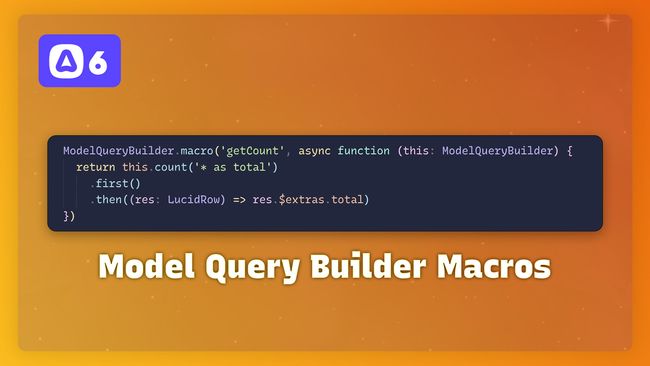
Model Query Builder Macros in AdonisJS 6
In this lesson, we'll learn how we can add custom methods to the Model Query Builder with Lucid in AdonisJS 6 using macros.


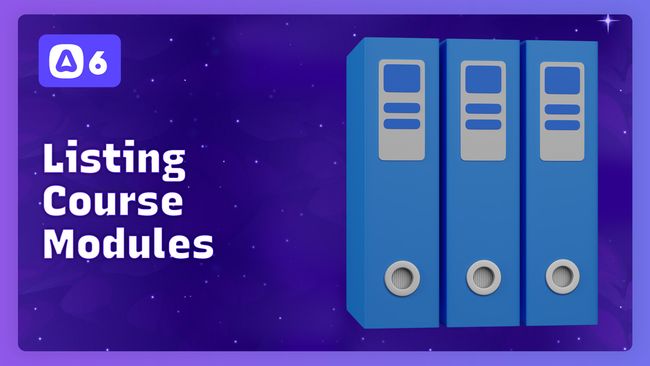
Querying & Listing Sortable Course Modules
In this lesson, we'll query and add a sortable list of a course's modules on the courses show page.


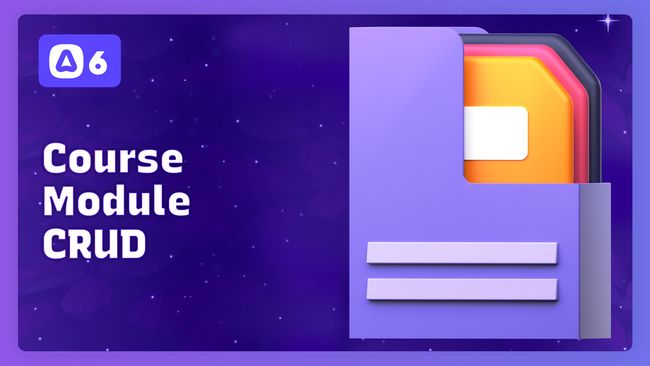
Creating, Editing, & Deleting Course Modules
In this lesson, we'll add the ability to create, edit, and delete a course's modules using the reusable components and composables we've created in past lessons.


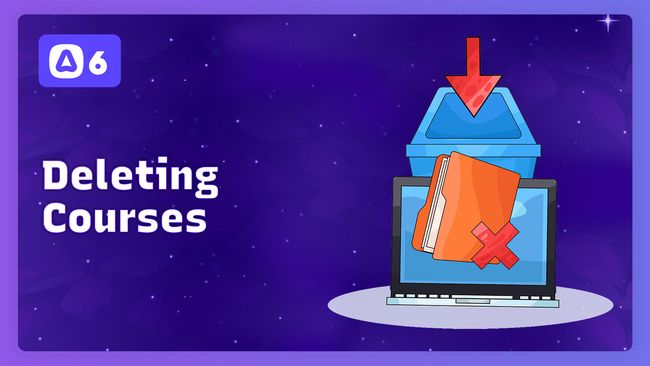
Deleting Courses
In this lesson, we'll add the ability to delete courses from an organization with confirmation from our user.
Showing 1 to 20 of 139 results